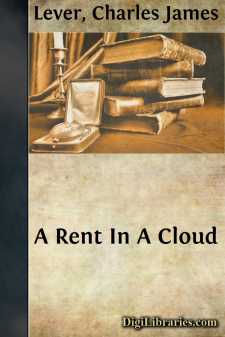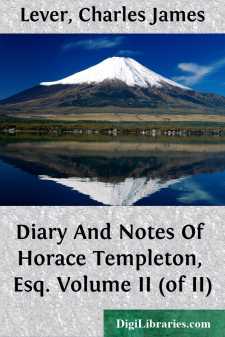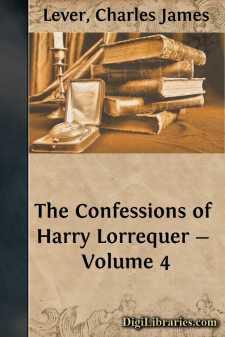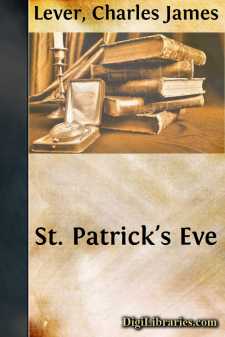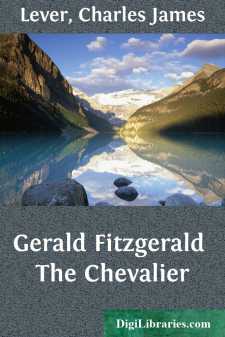Categories
- Antiques & Collectibles 13
- Architecture 36
- Art 48
- Bibles 22
- Biography & Autobiography 813
- Body, Mind & Spirit 142
- Business & Economics 28
- Children's Books 15
- Children's Fiction 12
- Computers 4
- Cooking 94
- Crafts & Hobbies 4
- Drama 346
- Education 46
- Family & Relationships 57
- Fiction 11828
- Games 19
- Gardening 17
- Health & Fitness 34
- History 1377
- House & Home 1
- Humor 147
- Juvenile Fiction 1873
- Juvenile Nonfiction 202
- Language Arts & Disciplines 88
- Law 16
- Literary Collections 686
- Literary Criticism 179
- Mathematics 13
- Medical 41
- Music 40
- Nature 179
- Non-Classifiable 1768
- Performing Arts 7
- Periodicals 1453
- Philosophy 64
- Photography 2
- Poetry 896
- Political Science 203
- Psychology 42
- Reference 154
- Religion 513
- Science 126
- Self-Help 84
- Social Science 81
- Sports & Recreation 34
- Study Aids 3
- Technology & Engineering 59
- Transportation 23
- Travel 463
- True Crime 29
Diary And Notes Of Horace Templeton, Esq. Volume I (of II)
Description:
Excerpt
CHAPTER I.
Hôtel des Princes, Paris.
It is a strange thing to begin a "Log" when the voyage is nigh ended! A voyage without chart or compass has it been: and now is land in sight—the land of the weary and heart-tired!
Here am I, at the Hôtel des Princes, en route for Italy, whither my doctors have sentenced me! What a sad record would be preserved to the world if travellers were but to fill up, with good faith, the police formula at each stage of the journey, which asks, "the object of the tour!" How terribly often should we read the two short words—"To Die." With what sorrowful interest would one gaze at the letters formed by a trembling hand; and yet how many would have to write them! Truly, the old Italian adage, "Vedere Napole es poi morire" has gained a new signification; and, unhappily, a far more real one.
This same practice of physicians, of sending their patients to linger out the last hours of life in a foreign land, is, to my thinking, by no means so reprehensible as the generality of people make out. It is a theme, however, on which so many commonplaces can be strung, that common-place people, who, above all others, love their own eloquence, never weary of it. Away from his children—from his favourite haunts—from the doctors that understood his case—from his comfortable house—from the family apothecary,—such are the changes they ring; and if dying were to be done often, there would be much reason in all this. But it is not so; this same change occurs but once, and its approach brings with it a new train of thoughts and feelings from all that we have ever felt before. In that twilight hour of life, objects that have escaped our vision in the blaze of noon-day become clear and distinct; and, even to the least reflecting of minds, an increased power of perception and judgment is accorded—the viaticum for the coming journey!
I remember being greatly affected by the stories in the "Diary of a Physician," when first I read them: they were powerfully written—and so real! Now this is the very quality they want: they are altogether unreal.
Terrific and heart-stirring as the death-bed scenes are, they are not true to nature: the vice and the virtue are alike exaggerated. Few, very few persons can bring themselves by an effort to believe that they are dying—easy as it seems, often as we talk of it, frequent as the very expression becomes in a colloquialism, it is still a most difficult process; but once thoroughly felt, there is an engrossing power, in the thought that excludes all others.'
At times, indeed, Hope will triumph for a brief interval, and "tell of bright days to come." Hope! the glorious phantom that we follow up the Rhine—through the deep glens of the Tyrol, and over the Alps!—Only content to die when we have lost it!
There are men to whom the truth, however shocking, is always revealed—to whom the Lawyer says, "You have no case," and the Physician confesses, "You have no constitution." Happily or unhappily—I will not deny it may be both—I am one of these....





